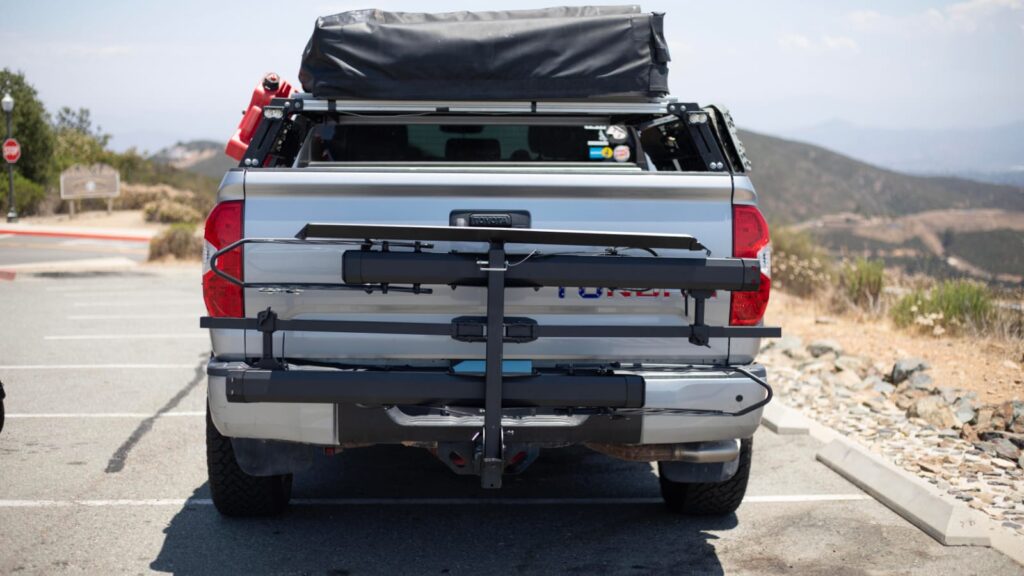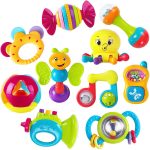
So, when the heat is on, you better have the gear to match. And when you’re hauling bikes, luggage, or gear on a hitch rack, the last thing you need is for that gear to warp, crack or fail halfway through your summer excursion. At that point, the right material can make all the difference.
Extreme cold and heat can destroy even a decent rack if built from the wrong materials. But fear not, I did the digging, so you don’t have to. So, let’s review the best materials for 2 bike hitch rack to thrive on the hottest days and not melt under pressure.
Why Heat Resistance Matters
You may not realise it, but the back of a car can get really hot. Sunlight bakes it all day, and exhaust heat adds to that. There’s also road friction and engine heat radiating up from beneath.
Here’s what that heat can do:
Weaken low-quality metals
Warp plastics
Crack or fade finishes
You have oxidising time rust and corrosion
If the metal in your hitch rack is wrong, your gear and peace of mind are in danger.
Top Materials for Avoiding the Heat
Here’s a breakdown of the best materials that can take extreme heat without cracking under pressure. Each has advantages, so it ultimately depends on what you need it for.
Aluminium Alloy
Lightweight, heater-friendly and resistant to rust.
There’s a reason aluminium is a favourite. It won’t rust, stands up to heat well, and is light enough to take on and off easily. Aluminium remains stable and keeps its shape even on hot summer days.
Pros:
It won’t rust or corrode
Great heat dissipation
Easy to handle
Cons:
It can be dented more easily than steel
Slightly more expensive
Ideal For: Regular road trips, light kit, daily use.
Stainless Steel
High performance under high heat.
Stainless steel is your dude if you want something that feels rock solid. It resists corrosion like a champ and doesn’t flex under high temps. Plus, it is more resistant to wear and tear than most.
Pros:
Super durable and strong
Doesn’t rust in hot, humid climate
Long-lasting investment
Cons:
Heavier than other options
It might cost more upfront
Best For: Long-distance travel with heavy loads and rugged use.
Powder-Coated Steel
Sun shield with solid steel.
Even steel can have a hard time with rust. However, powder-coating adds a protective layer, making it resistant to UV rays, rain, and heat. It also looks good — smooth and sleek. Just beware of chips or scratches, which can allow rust to creep in.
Pros:
Affordable and strong
The coating helps in terms of heat and corrosion
Widely available
Cons:
It can rust if the coating gets scratched
Heavier than aluminium
Best For: Waff is at royalty strength in moderate to hot climates.
Thermal Coated Carbon Steel
Designed for extremes like your excursions.
Carbon steel is tough as nails, butt’s not heat-proof. However, adding a thermal or ceramic coating can be the least. It takes on weight, heat, and rough roads with no problem (pun intended).
Pros:
Incredible strength
That’s good for heat-protective coatings
Ideal for long-term use
Cons:
It needs the right finish
Heaviest option on the list
Ideal For: Heavy loads, frequent use, and hot, dusty climates.
High-Temperature Polymers
New tech, unexpectedly resilient.
New hitch racks incorporating advanced polymers or hybrid materials engineered to remain calm even in the blazing sun are less standard. Such are generally placed in portable or modular racks.
Pros:
Lightweight
Droit doesn’t hot to the touch
Won’t corrode
Cons:
Less common
Can be pricey
Best For: Intra-city travel, small vehicles, and future-oriented gearheads.
What to Avoid in High-Heat
Not all materials are constructed for the scalding heat. Steer clear of:
Fundamental plastics – They melt, crack, or fade quickly.
Uncoated thin steel is Susceptible to rust and heat damage.
DIY wood or composite builds Heat causes them to be brittle or warped.
If your hitch bike rack is any of these, you should think twice before hitting the road this summer.
Substantial Help from Coatings & Finishes
Those are only half the story, though; materials are only one-half of the whole picture. But the finish makes the great rack even better in high heat.
Here are a few finishes to watch for:
Powder Coating — Provides durability and UV protection
UV-resistant paint – Prevents fading and heat damage
Anodising (for aluminium) Forms a heat-capturing external surface layer
Tips Before You Buy
Not all racks are the same, even if they seem to be. Here are a few pro tips before you settle on yours:
Think about your cargo. Heavy loads require tougher materials, such as steel.
Match it to your climate. Hot, dry areas = rust risk. Humidity places = coating matter more.
Look for a weight capacity and warranty. A good rack knows its stats and brags about them.
Read real reviews. Heat performance is one of the topics users frequently discuss.
Bonus: Some brands also test their racks under heat stress, which is worth looking for!
Final Thoughts
Extreme heat can push
We push our gear to the limit, but using the right hitch rack material can make your summer journey smooth, safe, and stress-free.
So do not let the sun melt your plans. Choose a hitch rack made for the heat and enjoy the ride.







